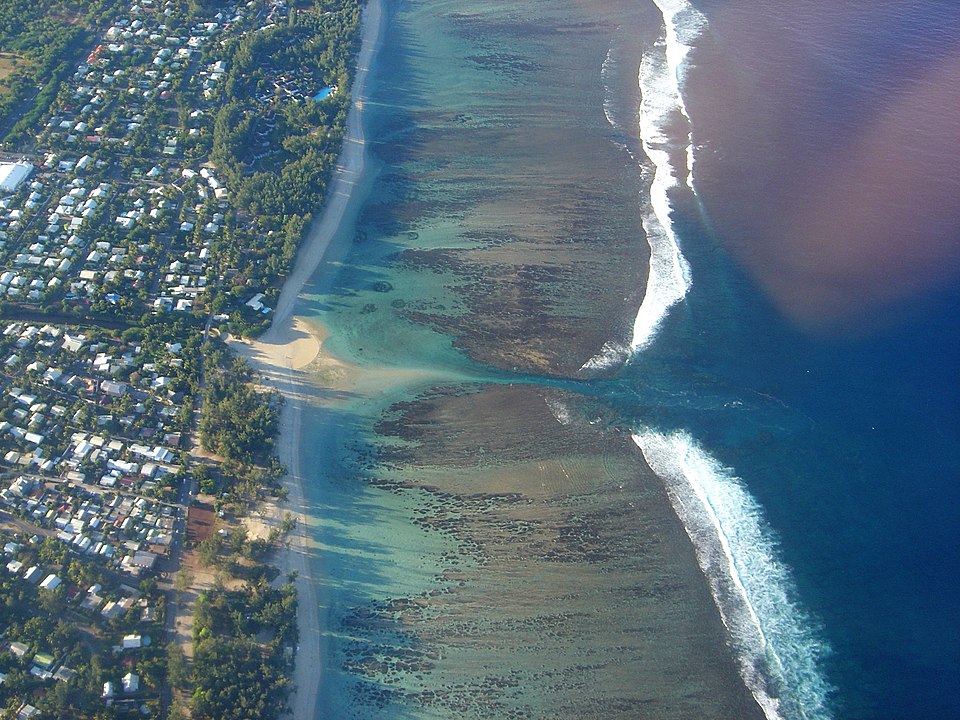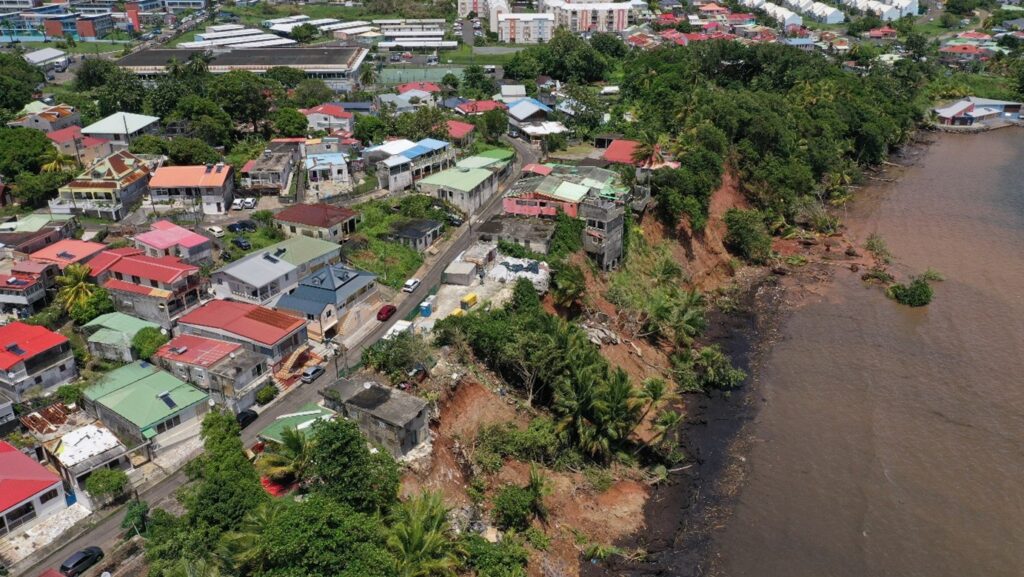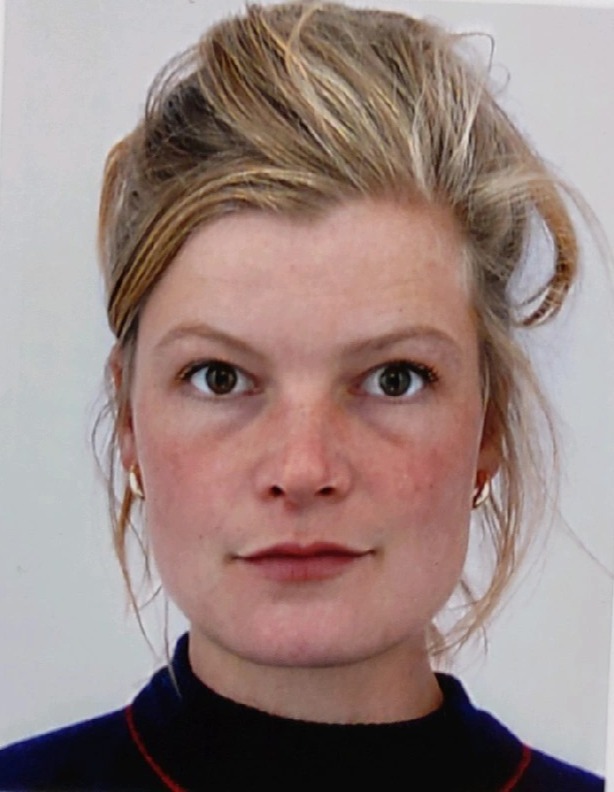Mirna BADILLO
An integrated framework to assess compound climate risks to small islands habitability (2023-2026 ; WP1/WP3/WP4)
Supervisor(s): Virginie Duvat, Professor of coastal geography, La Rochelle Université, LIENSs ; Gonéri Le Cozannet, Researcher, BRGM ; Jérémy Rohmer, Researcher, BRGM
Funding: 100% FUTURISKS
Atoll islands will be increasingly affected by climate-related changes, such as sea level rise, rising temperatures, and ocean acidification. These changes will simultaneously affect multiple dimensions of atoll island systems (environmental, social and economic), challenging their resilience. This research aims to better understand the complex interactions between climatic and non-climatic factors that influence the habitability of these islands. It proposes the development of an integrated model, based on Bayesian networks, to assess the future impacts of climate change on key dimensions of habitability (Duvat et al., 2021), such as food security, access to freshwater, the availability of habitable land, and economic activities.
© Comme un accord / Eva Boissonnade-Boyer
Lila BAHROUN
Supervisor(s): Héloïse Michaud, Researcher, SHOM, Frédéric Bouchette, Professor, Université de Montpellier, Géosciences Montpellier, and Yann Krien, Professor assistant, LEGOS)
Financement: 50% FUTURISKS + 40% SHOM + 10% Géosciences Montpellier


Hermitage-les-Bains beach (photo from Mai-Linh Doan)
Johanna BARROS
The relocation of assets and activities in response to coastal erosion and marine submersion risks in Martinique and Guadeloupe: from policy implementation to social reception (2024-2027 ; WP4)

Supervisor(s): Catherine MEUR-FEREC, Professor of geography, Université de Bretagne Occidentale, LETG, Carola KLOECK, Professor of political sciences, Sciences Po Paris, CERI
Funding:
In the face of worsening coastal erosion and marine submersion risks in the French Caribbean, relocation is increasingly discussed as a climate change adaptation strategy. This retreat strategy—still marginal in practice—raises significant legal, social, political and territorial challenges, especially in island contexts. In Martinique and Guadeloupe, land constraints linked to coastal concentration, and the specific case of the “bande des 50 pas géométriques”—a colonial legacy where many residents live without legal property rights—make implementation particularly complex.
This thesis examines how relocation is being implemented in Guadeloupe and Martinique through various mechanisms (slum clearance programs, pilot projects, local initiatives) and at different stages of progress. It focuses on how affected residents receive, contest or appropriate these policies, through the lens of their personal experiences, risk perceptions, residential trajectories, and relationships with public institutions.
By combining the analysis of institutional frameworks with a study of social reception, this research seeks to understand under what conditions relocation can—or cannot—become a legitimate and sustainable response to the growing challenges of coastal adaptation in French overseas territories.

Bel-Air district exposed to cliff erosion, Petit-Bourg, Guadeloupe (Petit-Bourg town hall)
Axelle GAFFET
Contributions of exceptional distant-source swells to past sea submersions in French Overseas Territories (2022-2025 ; WP1)
Supervisor(s): Xavier Bertin, Senior researcher CNRS, La Rochelle Université, LIENSs ; Damien Sous, Professor assistant, Université de Pau et des pays de l’Adour, SIAME ; Gaëtan Dufour, Project manager at Créocéan
Funding: 100% CIFRE CREOCEAN
Due to the concentration of populations and associated activities in coastal areas, the increase in coastal hazards and the degradation of coral reefs linked to global change, tropical islands will face an alarming increase in coastal risks in the coming decades. Major submersion events can occur in the wake of a tropical cyclone, but also as a result of exceptional distant swells, a phenomenon little known until now. Over the past decade, understanding of the contribution of waves to extreme sea levels has progressed enormously, thanks to studies combining field observations and high-resolution numerical simulations. The representation of tropical sea states must be improved and the the major events of the past decades need to be revisited, to better understand and quantify the importance of setup and infragravity waves in the associated marine submersions.
© Comme un accord / Eva Boissonnade-Boyer
Mila GEINDRE
Wave transformation processes in coral reef environments (2023-2026 ; WP2)
Supervisor(s): France FLOC’H, Associate Professor, Université de Bretagne Occidentale, Geo-Ocean (UMR 6538) ; Damien SOUS, Associate Professor à l’école d’ingénieurs SeaTech and research, Institut Méditerranéen d’Océanologie (MIO) de l’Université de Toulon
Funding: 50% FUTURISKS + 50% UBO
This phd thesis aims to improve the spectral parameterization of key processes involved in wave transformation over coral reefs, based on observational data. It specifically focuses on friction, depth-induced breaking, and nonlinear energy transfers. These processes are closely linked to the incident wave hydrodynamics (wave height, period, water depth, etc.) and to the multi-scale geomorphological features of reef systems (reef type, slope, roughness, benthic cover, etc.).
© Comme un accord / Eva Boissonnade-Boyer
Maëlys GIRAULT
The reconstruction of trajectories of exposure and vulnerability to support coastal adaptation to climate change: application to the French Pacific islands (New Caledonia; French Polynesia) (2023-2024 ; WP3)
Supervisor(s): Virginie Duvat Professor of coastal geography, La Rochelle Université, LIENSs ; Alexandre Magnan, Researcher, Cawthron Institute
Funding: 100% FUTURISKS
The study proposes to demonstrate the importance of long-term history for the analysis of adaptation to climate change through two aspects: the reconstruction of Trajectories of exposure and vulnerability and the investigation of structural and long-term barriers to the governance of adaptation. This deep contextualisation effort should ensure fair and adapted adaptation practices. The analysis focuses on the management of current and future coastal risks of erosion, marine submersion, flooding and the combination of these pressures in two French Pacific territories: New Caledonia and French Polynesia.
© Comme un accord / Eva Boissonnade-Boyer
Alice JACOBEE
Socio-cultural Habitability for Climate Change Adaptation on the Coastal Areas of New Caledonia

Supervisor(s): Virginie Duvat Professor of coastal geography, La Rochelle Université, LIENSs ; Alexandre Magnan, Researcher, Cawthron Institute
Funding: 100% ADEME
Living in coastal areas depends on many conditions that are highly sensitive to climatic hazards: cyclones, rainfall, marine heatwaves, droughts, and sea-level rise. These phenomena lead to flooding, shoreline retreat, and coral bleaching, all of which coastal populations must adapt to. Yet, research on habitability has largely focused on physical, technical, or economic criteria, without sufficiently integrating socio-cultural dimensions, which are essential to the way people inhabit a place. Moreover, the concept has long been framed from the perspective of temperate Europe, which set the standards by which the habitability of tropical territories was assessed.

Lola ORMIERES
Analysis of Storm Surges and Coastal Flooding Caused by Cyclones in the French Tropical Islands Over the Past Four Decades (2023-2026 ; WP2)
Supervisor(s): Xavier Bertin, Senior researcher CNRS, La Rochelle Université, LIENSs ; Franck Dollique, Professor, Université des Antilles, IRD, BOREA MNHN ; Yann Krien, Assistant professor, LEGOS
Funding: 100% FUTURISKS
As tropical islands face increasing hazards from extreme sea levels and marine submersion due to climate change, sea level rise, possible intensifying cyclones, and the degradation of coral reefs, this research aims to better understand the key processes driving coastal risks such as marine submersion. The study will combine the analysis of both observational data and numerical simulations. While atmospheric storm surge is relatively well understood, the contribution of wave energy dissipation at the coast to water level along with its interactions with complex features such as rough seabeds (e.g., reefs), currents, and tides remains less studied and poorly understood. Using data from recent field surveys (e.g., Mayotte 2023, Guadeloupe 2017), the project will investigate the physical mechanisms influencing coastal mean water levels during past extreme events, supported by coupled wave–hydrodynamic modeling.
© Comme un accord / Eva Boissonnade-Boyer
Anni SCHLÜTER
Evolutions des risques de submersion marine dans les iles tropicales françaises au cours du 21ème siècle
Supervisor(s): Xavier Bertin, Senior researcher CNRS, La Rochelle Université, LIENSs ; Kevin Martin, researcher, CNRS, LIENSs ; Virginie Duvat, Professor of coastal geography, La Rochelle Université, LIENSs
Funding: 50% FUTURISKS + 50% La Rochelle Université
Aline ZRIBI
Representativeness and uncertainties of the cyclone hazard in the French Overseas Territories (2023-2026 ; WP1)
Aline Zribi
Supervisor(s): Xavier Bertin, Senior researcher CNRS, La Rochelle Université, LIENSs ; Swen Jullien, Researcher, IFREMER, LOPS ; Guillaume Dodet, Researcher, IFREMER, LOPS
Funding: 50% FUTURISKS + 50% IFREMER
The French Overseas Territories located in tropical zones are particularly exposed to tropical cyclones, which are responsible for violent winds, heavy rainfall, extreme waves and marine submersion. These are complex phenomena (stochastic aspect, highly coupled dynamics, multi-scale interactions, etc.) that remain difficult to characterise, even a posteriori. The aim of this thesis is to reconstruct several major cyclonic events that have occurred since the 1980s, in order to analyse their characteristics and assess the uncertainties associated with the cyclonic hazard in these territories.
© Comme un accord / Eva Boissonnade-Boyer
